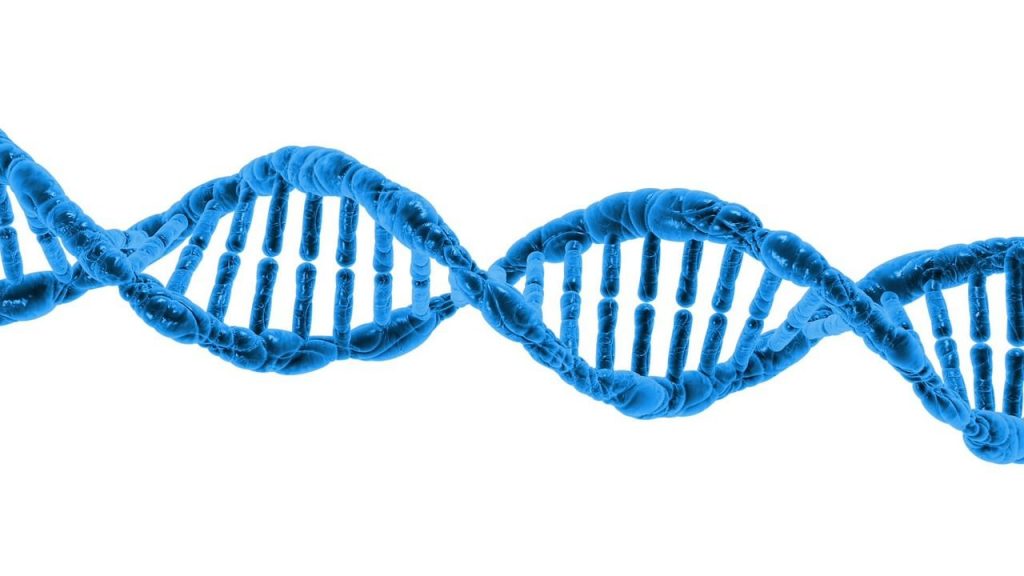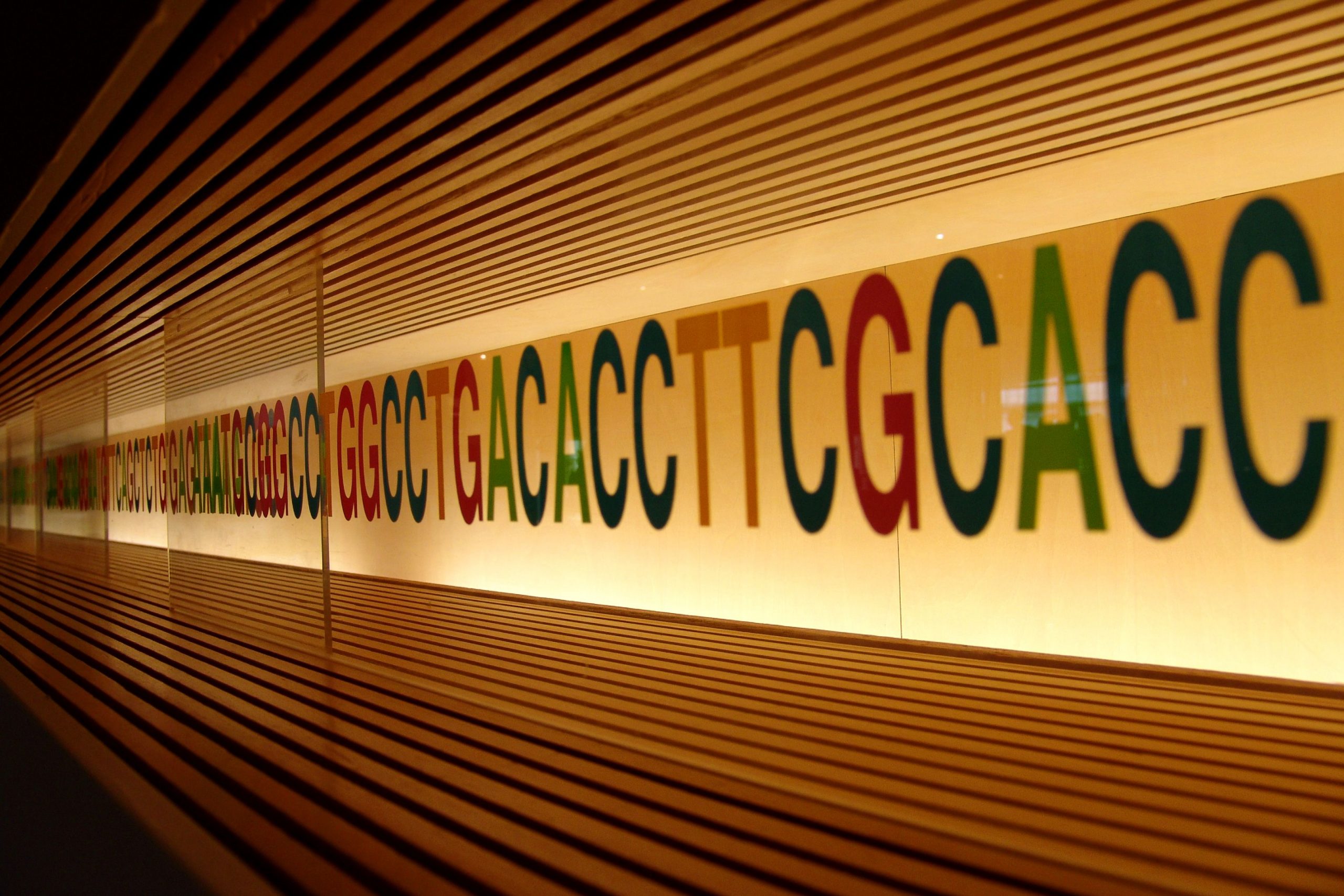Deep Reads: John Bryant reflects on a book that inspired his research
The fourth of our Deep Reads blog posts is written by John Bryant, a Professor Emeritus of Cell and Molecular Biology at the University of Exeter, UK. In addition to his deep interest in plant DNA, John has been involved actively in Bioethics for the past 20 years. He retains a passion for the natural world in general and is very active in communicating science and bioethics to a wider public.
A colleague and I were talking about the books we had kept since our undergraduate days. As we compared our lists, both of which were relatively short, we were delighted to find one book in common: Towards an Understanding of the Mechanism of Heredity by H.L.K. Whitehouse. My colleague and I were each fortunate enough, in our respective undergraduate years at Cambridge, to ‘sit at the feet’ of the author, Harold Whitehouse, or ‘Flash’ as we affectionately called him. Needless to say, Harold was not in any way ‘Flash Harry’, rather the opposite in fact. In my third year as a student, Whitehouse gave a series of lectures on genetics that really were inspirational! They were models of clarity and of organisation. Each lecture told a story; stories that dealt with classical views of inheritance, Mendelian genetics, chromosome theory, views on the nature of genes, the functioning of DNA and so on. Evidence was discussed and evaluated, and conclusions were reached. We were brought right up-to-date.

In my time at university, we learnt that the lectures were based on a book (or was it the other way round?) that was soon to be published. Towards an Understanding of the Mechanism of Heredity was published after I graduated, but I can genuinely say that its contents and associated lectures pushed my career in a particular direction. I think especially of the chapters on DNA as genetic material, the genetic code, the nature of genes and operons and above all on the replication of DNA. I was, in addition to being thrilled by developments in molecular genetics, very interested in and committed to plant biochemistry. Indeed, I had already started to sound out Thomas ap Rees (who has been a major role model throughout my academic life) with a view to doing a PhD with him. But the combination of plant biochemistry and molecular genetics meant that for me, only one option was possible: I had to work with nucleic acids. Tom ap Rees was primarily known for his work on metabolic regulation which, without a doubt, would have been the direction I would have taken, had it not been for Harold Whitehouse’s lectures and book. As it happened, Tom allowed me to go where I wanted to go and I started a research career in which a major focus has been the biochemistry of plant DNA replication and its place in the cell division cycle.
But back to Towards an Understanding of the Mechanism of Heredity. As mentioned earlier, it was not published in time for me to read as an undergraduate, even though we had been exposed to its contents in lectures. PhD grants do not have much leeway for buying books and thus it was not until the second edition was published (just four years after the first) that I splashed out some of my postdoc salary to get my own copy. It is indeed a wonderful text. Look at the modesty and understatement of the title: Towards an Understanding … This contrasted greatly with the brashness and confidence of much of the molecular biology community. The book is highly readable, clear and well-organised, with each chapter devoted to a specific theme (or in Whitehouse’s terminology, theory) in genetics, dealing with the evidence and the conclusions with admirable clarity. It was a great help to me in my early years as a university teacher, with much of my teaching being at the interface between biochemistry and genetics. It is still a very good read, even though, inevitably in this field, much of it is now out-of-date.
Inspired by Towards an Understanding of the Mechanism of Heredity, my research interests led me to investigate plant DNA polymerases and other enzymes involved in plant DNA replication in my own research group. Indeed, for several years, mine was one of only four groups across the world working on these enzymes. This reinforced my interest in cell division and led me, together with Dr Dennis Francis, to set up the Cell Cycle group within the Society for Experimental Biology. The success of that group was celebrated in three days of good science at the 2013 Annual Main Meeting of the Society¹. In the meantime, working on DNA, the stuff of genes, eventually led me back to genes themselves, in looking at the regulation of genes encoding proteins involved in the initiation of DNA replication. And, just like Harold Whitehouse in his writings and lectures, I think we are approaching an understanding of these things².

We at PLOS Genetics are looking for new submissions for our Deep Reads blog series and would love to find out more about the books that have inspired you as a scientist. Have any books introduced you to a captivating new scientific concept? Or made you think about something in a completely different way? Perhaps there’s a biography of a prominent scientist that you found particularly moving. If so, please get in touch.
Selected posts will be published on PLOS Biologue and should be no more than 800 words with one or two images. Entries should relate to a book (either fiction or non-fiction) with a genetics/genomics component.
Please send entries to plosgenetics@plos.org by 20th July, 2015 and we’ll be in touch if yours is chosen.
1 See, for example http://jxb.oxfordjournals.org/content/early/2014/02/02/jxb.ert469.full.pdf?keytype=ref&ijkey=lzrXOMWCzlazdzl
2 This understanding of science as ‘an approach to the truth’, verisimilitude, is one of the main ideas discussed by the science philosopher Michael Polyani whose work I have come to appreciate

[…] (adsbygoogle = window.adsbygoogle || []).push({}); adUnit = document.getElementById("google-ads-kVwa"); adWidth = adUnit.offsetWidth; if ( adWidth >= 999999 ) { /* GETTING THE FIRST IF OUT OF THE WAY */ } else if ( adWidth >= 728 ) { document.getElementById("GARDasync_kVwa").innerHTML = ""; } else if ( adWidth >= 468 ) { document.getElementById("GARDasync_kVwa").innerHTML = ""; } else if ( adWidth >= 250 ) { document.getElementById("GARDasync_kVwa").innerHTML = ""; } Read more: https://blogs.plos.org/biologue/2015/05/29/deep-reads-john-bryant-reflects-on-a-book-that-inspired-hi… […]